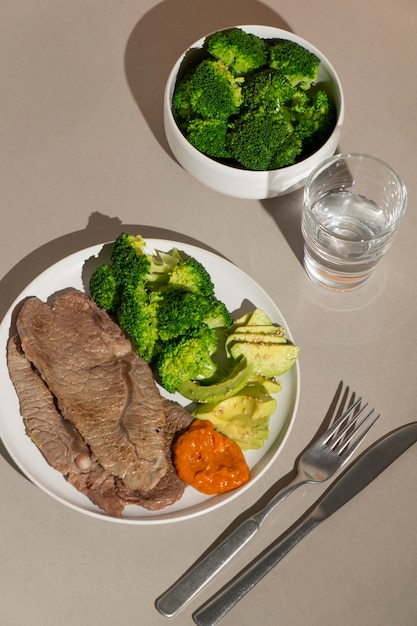
Do you struggle with eczema? Certain foods can help reduce the inflammation that causes dry, itchy, and flaky skin, says nutritionist Olga Hamilton. Eczema is a long-term inflammatory condition that can make your skin feel uncomfortable. According to the National Eczema Society, one in five children and one in twelve adults in the UK have this condition.
While your diet may not cause eczema, eating specific foods can trigger flare-ups. Research shows that dietary factors can worsen eczema, often leading to reactions shortly after eating. Nutritionist Olga Hamilton suggests five dietary changes to manage eczema better.
First, consider adding probiotics to your diet. These are beneficial bacteria that support your immune system and inhibit harmful bacteria growth in your gut. The most researched strains, Lactobacillus and Bifidobacterium, help protect against atopic dermatitis (eczema). Probiotics can help balance your immune system and reduce inflammation. Include foods like yogurt, kefir, raw cheese, fermented soy products, kombucha, and fermented vegetables in your meals.
Next, don’t forget prebiotics. These are fibers that feed the good bacteria in your gut, helping them grow. Prebiotics can help protect against intestinal infections and inflammatory conditions like eczema. Beans, legumes, Jerusalem artichokes, leeks, shallots, chicory, asparagus, mushrooms, garlic, and onions are excellent sources. Try to have at least three portions of these vegetables daily to maximize the benefits.
Improving your liver function can also help manage eczema. Your liver filters toxins from your blood, but when overburdened, it can lead to skin issues like eczema. Including cruciferous vegetables, like cabbage, kale, broccoli, and Brussels sprouts, in your diet can promote better liver function. These vegetables help your liver produce enzymes that detoxify your body and reduce inflammation.
Turmeric is another powerful tool. This spice, common in Asian cuisine, contains curcumin, which has anti-inflammatory and antioxidant properties. Research indicates that turmeric can significantly reduce eczema symptoms like scaling, thickening, and itching. Incorporate turmeric into your cooking to harness its benefits.
Lastly, ensure you get enough vitamin D. This nutrient supports your immune system and can help reduce inflammation. Sun exposure, wild oily fish, vitamin D-enriched mushrooms, and grass-fed cow’s butter are good sources. Many people have low vitamin D levels, which can worsen eczema. Symptoms of deficiency can be subtle, so consider monitoring your intake to ensure you get enough.
By including these foods in your diet, you can help manage eczema and improve your skin’s health.

